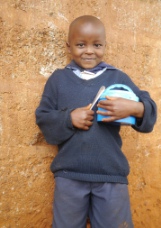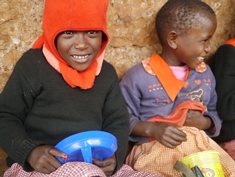Efforts to tackle the silent emergency of acute and chronic malnutrition in Africa will receive additional traction this week when the African Union and partners join forces in Addis Ababa to celebrate the Africa Day for Food and Nutrition Security.
The high-level event on 31 October which will be opened by the Chairperson of the African Union Commission, Nkosazana Dlamini-Zuma, focuses on "ensuring access to safe and nutritious food."
It calls upon governments, civil society, donors and other partners to prioritize food and nutrition security in all development planning and financing. The Africa Day for Food and Nutrition Security which was adopted by the 15th African Union Summit in Kampala in 2010 will be celebrated for the third time, both at the continental level in Addis Ababa and at the national level throughout Africa.
TheImpact of Malnutrition on Child Health and Child Development

Malnutrition has dramatic consequences: more than one million children under five die every year in sub-Saharan Africa, with malnutrition being the direct or indirect cause.
Recognizing the key role that adequate nutrition plays in Africa’s social and economic development, partners at the regional and global level are gearing up their support for comprehensive interventions in food and nutrition security.
"Stunting and other forms of malnutrition, including micronutrient deficiencies, during the first two years of life cause irreparable harm to children’s opportunities in life. These conditions impede their physical growth and lead to irreversible cognitive damage, hampering their learning abilities." said Elhadj As Sy, UNICEF Regional Director for Eastern and Southern Africa.
"Stunted girls are more likely to have small and low birth weight babies. All of this has a tremendous negative impact on the economic growth of countries. Investing in children’s and women’s nutrition is therefore not only the right thing to do, it is also a cost-effective investment in the development of African nations."
The day aims tocreate awareness that addressing malnutrition can accelerate economic growth and pull millions of people out of poverty. It has been estimated that investing in nutrition can increase a country’s gross domestic product (GDP) by at least 2-3 per cent annually.
The Launch of the Africa Nutrition Security Partnership
To help fight malnutrition, the European Union and UNICEF have launched the Africa Nutrition Security Partnership. The initiative is co-financed by the European Union through a grant of €15million and supports four African countries that bear a heavy burden of child malnutrition – Burkina Faso, Ethiopia, Mali and Uganda – until 2015.

"Malnutrition kills, and for those who survive, it can have irreversible consequences. Malnutrition also undermines development efforts and growth at all levels. We know that women are at the crux of agriculture, food and nutrition security in their roles as farmers, providers of food and mothers.
This is why the food assistance, food security and gender policies we adopted address nutrition as a core objective in key sectors like agriculture, food security, health and water," said Gary Quince, Head of Delegation and Special Representative of the EU to the African Union.
School Feeding Using Locally Sourced Produce - a win-win for both farmers and school children
Initiatives such as Home Grown School Feeding can bridge the gap in child malnutrition. Appropriately designed school feeding programmes have been shown to increase access to education and learning, and improve children’s health and nutrition, especially when integrated into comprehensive school health and nutrition (SHN) programmes.
And furthermore, school feeding programmes which use locally grown produce also provide an opportunity to benefit local farmers, producers and processors by generating a stable, structured, and predictable demand for their products, thereby building the market and benefiting the wider local economy.

